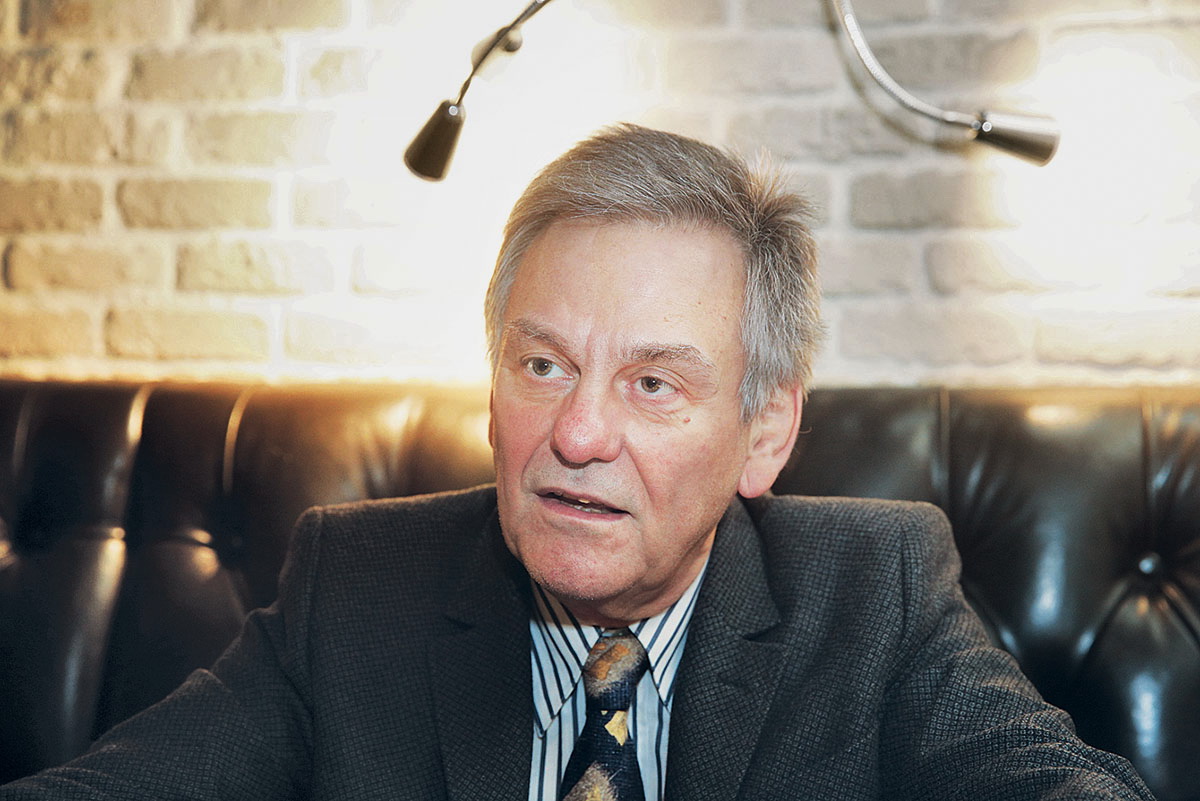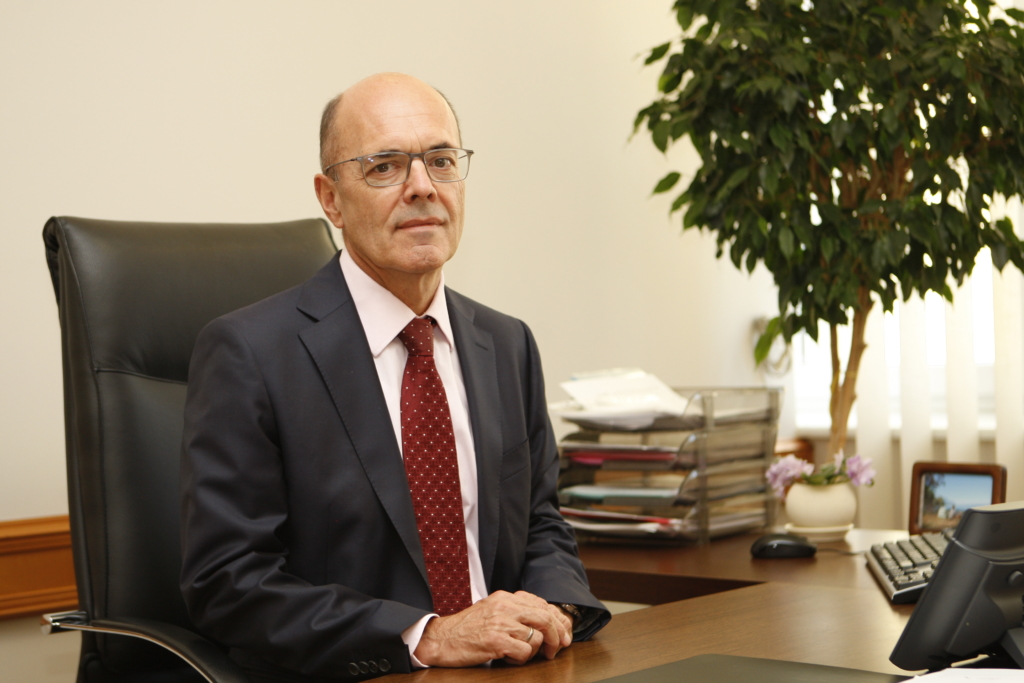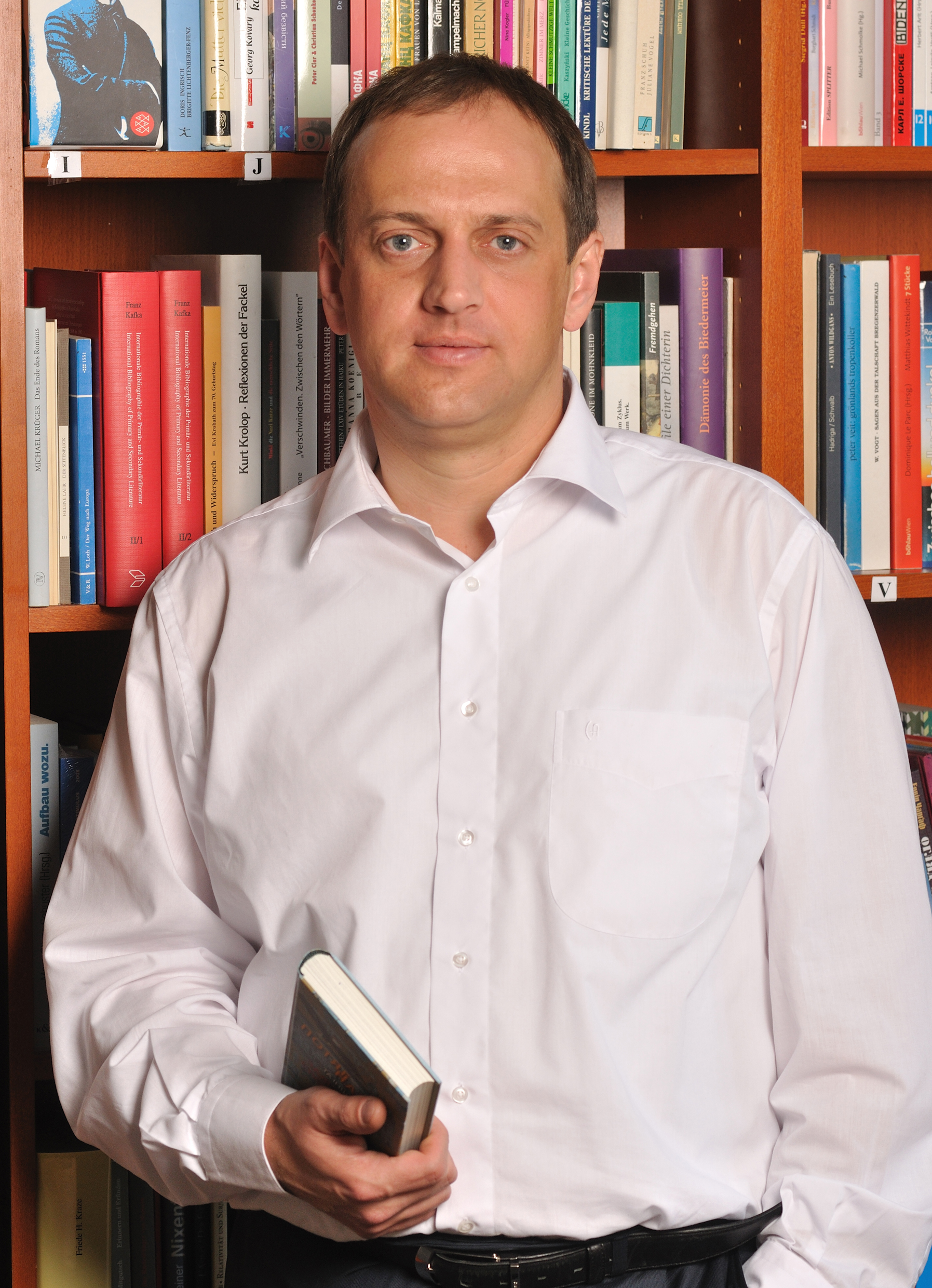They moved to Ukraine a long time ago. While some of them miss Austria, others cannot imagine living anywhere but Ukraine. Four Austrian expats share their experience of life and work in Ukraine.
Christian Ferdinand Wehrschutz, 56
A correspondent of ORF, an Austrian national television and radio broadcaster, Wehrschutz speaks perfect Ukrainian and Russian, and cannot get enough of Ukrainian cuisine.
Wehrschutz first came to Ukraine in 1992 as a journalist and traveled all over Ukraine. In 1999, he was transferred to Belgrade, Serbia, and returned only in 2014 to cover Ukraine for ORF.
“In 2014, my family saw me for only 20 days,” Wehrschutz said. “I was traveling all the time and covered every hot spot in Ukraine.”
Wehrschutz’s wife and two daughters live in Austria. He misses his family a lot. Whenever his wife comes to visit Ukraine, Wehrschutz will take her to restaurants serving traditional Ukrainian cuisine.
Wehrschutz jokes that it is hard to stay in shape in Ukraine.
“The food is too good,” he says.
Wehrschutz even likes salo, the traditional Ukrainian dish of raw pork fat.
What he does not like, however, is Ukraine’s media bureaucracy.
“As a foreigner, I have no right to enter any kind of military facilities, even the Defense Ministry of Ukraine, I have to write a request to participate,” he says. “At the same time, I have a (press) pass for the war zone. Isn’t that inconsistent?”
He is also astonished by the gap between the poor and the rich.
“Too many extremely rich people and no middle class – that’s also the problem in Ukraine.”
Alfred F. Praus, 63

President of the Ukrainian-Austrian Association talks to Kyiv Post on Nov.28.
President of the Ukrainian-Austrian Association, Praus has lived in Ukraine since 2009 and says that he likes the country.
Praus first came to Ukraine in 2004 as a top management adviser for Austrian businesses in Ukraine. Until 2009, he used to split his time between two capitals, Kyiv and Vienna, but in 2008 he met his future wife, a soloist of National Opera of Ukraine Susanna Chakhoian, and settled down in Kyiv. After two years, Chakhoian gave birth to their son Daniel Praus.
Praus likes Ukraine.
“The fact that I’ve lived here for so long is the best compliment to this country I can express,” he said. But he says he finds it difficult to do business in Ukraine, because many Ukrainian businesses are sloppy when they prepare documents, and do not follow European standards.
Another downside is that business in Ukraine is too sensitive to politics: “If politics are bad, business is bad.”
His solution for success? Praus suggests Ukraine make sure it has a safe, predictable and stable political environment, something the country has always lacked.
Altogether though, he likes the atmosphere in Kyiv, as it reminds him of his childhood in Austria.
“Ukrainians have stronger family ties, children are closer to their parents here,” he said.
“Ukrainians take care of their grandparents when they get old, instead of sending them to retirement homes.”
Gerhard Bosch, 60

The first deputy chairman of Raiffeisen Bank Aval’s board Gerhard Bosch at his office. (Courtesy )
Bosch, the first deputy chairman of Raiffeisen Bank Aval’s board, was stunned by his experiences in Ukraine at first, but now he likes the country.
Bosch came to Ukraine in 2006 with his family to make Raiffeisen Bank Aval a success story. But his first experience of the country was not the best.
“I was wondering why one of the biggest banks in Ukraine is such an old-style, bureaucratic institution,” Bosch said of Raiffeisen Bank Aval. “I wanted to change that.”
Business-related matters are not easy in Ukraine, but there has been improvement over the last 10 years, he said.
He likes living in Kyiv because “the city gives me what I need: I live close to the office, I do sports, Kyiv is big, it has lots of events going on every evening, and I have no negative experiences of any kind.”
Andreas Wenninger, 49

Andreas Wenninger, the director of OeAD Austrian Agency for Academic Mobility in Ukraine. (Courtesy )
Wenninger, the director of OeAD Austrian Agency for Academic Mobility in Ukraine, an Austrian agency promoting cooperation in education, science and research, originally planned to stay in Lviv for three years only. Instead, he has been living in Ukraine since October 2000.
“I applied for this job in Ukraine to collect additional job experience in Eastern Europe, and I planned to stay in Ukraine for up to three years,” Wenninger said. “Now I’ve been here almost 18 years, and today I cannot imagine leaving this country.”
The Austrian does not like Ukraine’s long winters however. However, living in Lviv is not too bad, considering its close proximity to Vienna.
“Lviv is not big and I am able to walk to my office and back home every evening without using public traffic, which seems horrible to me,” he said.
He lives in Ukraine with his wife and two-year-old son.
“We are studying the Ukrainian language, and are slowly turning into Ukrainians.”
